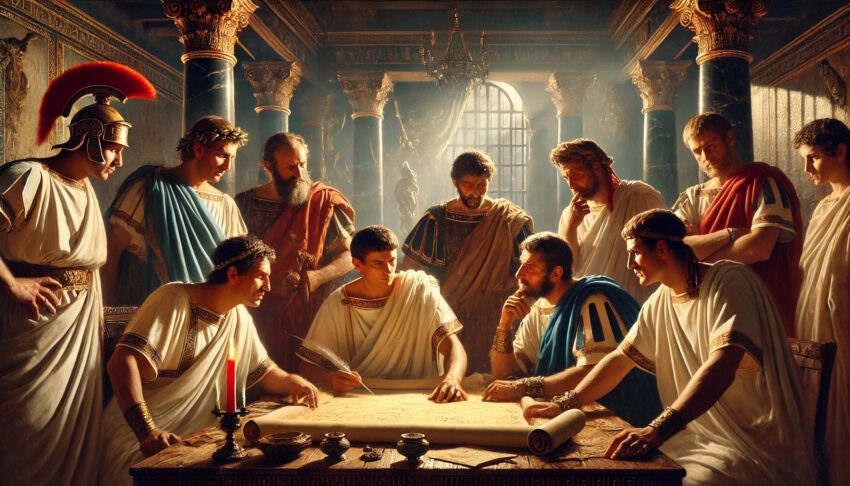Political, personal, and philosophical reasons
The motivations behind the assassination of Julius Caesar were varied and complex, encompassing political, personal, and philosophical dimensions. Each conspirator brought a unique set of reasons for participating in the plot, reflecting the multifaceted nature of the conspiracy.
Political Reasons: Politically, many conspirators were deeply concerned about Caesar’s concentration of power. His appointment as ‘dictator perpetuo’ (dictator for life) alarmed those who cherished the traditional Republican values and feared the end of the Republic. Figures like Gaius Cassius Longinus viewed Caesar’s rule as a direct threat to the Senate’s authority and the checks and balances of Roman governance. Plutarch and Suetonius both highlight this fear of tyranny as a central motive for the assassination.
Personal Reasons: Personal grievances also played a significant role. Cassius, for example, harbored a deep resentment towards Caesar, partly due to perceived slights and rivalry. Decimus Junius Brutus Albinus, a close confidant of Caesar, might have been motivated by jealousy and a sense of betrayal, feeling overshadowed by other loyalists like Mark Antony. Gaius Trebonius and Servilius Casca had their own reasons for disillusionment, having grown increasingly critical of Caesar’s autocratic style. These personal animosities were compounded by the allure of restoring their status and influence within the Republic.
Philosophical Reasons: On a philosophical level, many conspirators, especially Marcus Junius Brutus, were influenced by Republican ideals and Stoic philosophy. Brutus, in particular, was seen as an embodiment of Republican virtue, committed to the principles of liberty and the common good. Plutarch’s ‘Life of Brutus’ emphasizes his internal struggle and ultimate decision to join the conspiracy as an act of moral duty to Rome. The philosophical argument was that Caesar’s death was necessary to preserve the Republic and prevent the rise of a monarchy.
In conclusion, the conspiracy to assassinate Julius Caesar was driven by a confluence of political fears, personal grievances, and philosophical beliefs. Ancient historians like Plutarch, Suetonius, and Appian provide a rich tapestry of motives, illustrating how the desire to protect the Republic, personal vendettas, and ideological commitments intertwined to prompt one of history’s most pivotal events.
 |
 |
 |


